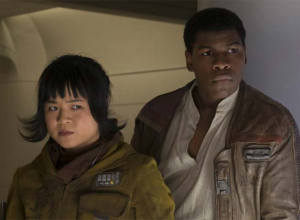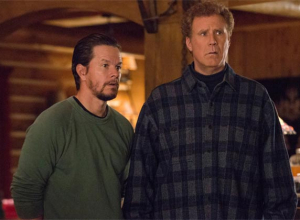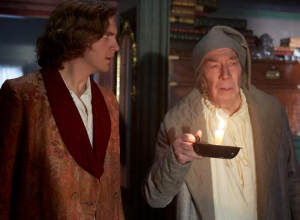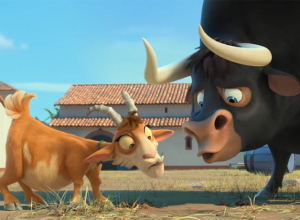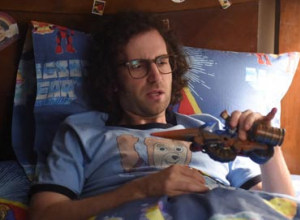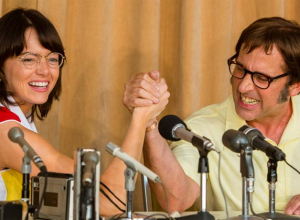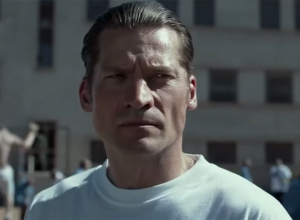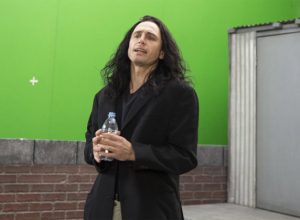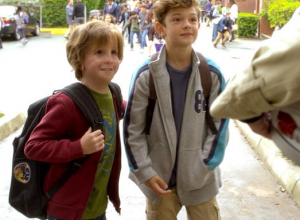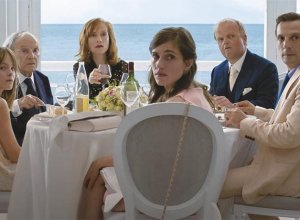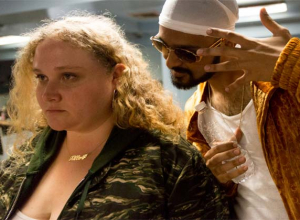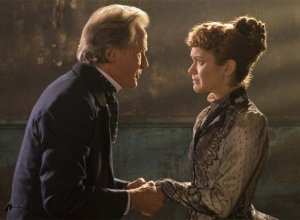The Discreet Charm of the Bourgeoisie Review
By Jake Euker
Buñuel's cheerful blasphemy was, as you can imagine, shocking, but his commitment to relaying narrative through free-associative, non-linear images - his commitment, that is, to the Surrealist creed that raged among Parisian artists - was seen by many to be as grave an affront. Audiences grew hostile, it seems, when, in Buñuel's films, livestock lounged about in the beds of debutantes or miffed gamekeepers shot and killed children to blow off steam. Buñuel, who was a Spaniard, suffered a more concrete hardship when Fascists took power in Madrid in 1938; he eventually settled in Mexico in 1946, returning to Spain in 1961 where General Franco banned his first new film, Viridiana, just as hurriedly as the jury at Cannes awarded it the Palme d'or. And so Buñuel relocated to France, now in his 60s, and at an age when most directors have retired or have long since begun recycling their own material, he entered one of the most fertile periods enjoyed by any filmmaker anywhere. There are masterpieces scattered among Buñuel's French films like confetti, but in his 1972 comedy The Discreet Charm of the Bourgeoisie, one of cinema's most brilliant directors made the most brilliant film of his career.
The Surrealism is present, but what once was aggressively confrontational has transformed, for the most part, into the hilariously inappropriate. The story, to the extent that one exists, deals with the attempts of three affluent Parisian couples to successfully take a meal together without tragedy, calamity, or emergency troop maneuvers interfering, which they invariably do. It's a problem; without a meal in front of them this clique of glittering fashion plates and powerbrokers can't think of a single thing to do. Between abortive dinner and lunch appointments, the men - one of whom (Fernando Rey) is ambassador to the fictional South American country of Miranda - smuggle substantial quantities of cocaine into France in diplomatic pouches and fire rifles out the embassy windows at an attractive young street vendor who may or may not be a spy. In the absence of the men, the women a) drink; b) have sex with one another's husbands; and c) make a pretense of worrying that their Chanel gowns may not be nice enough to wear to a neighborhood inn. Buñuel shows sublime assurance in directing what amounts to a top-drawer ensemble - he elicits performances from them that blend artifice and desperation into a delicious, satiric aperitif, all within his usual businesslike, deadpan style - and his work here exhibits the kind of ease that perhaps only a master filmmaker of such advanced age could achieve. Alfred Hitchcock called Buñuel cinema's greatest director; in The Discreet Charm of the Bourgeoisie evidence that this might be so glows serenely, frame by frame, on the screen.
The coup-de-grâce, though, is the lunatic nonchalance that Buñuel brings to the film's structure. He violates narrative rules and convolutes the flow of his film as though he literally could not be made to care whether or not he brings his characters safely to a conclusion. (A recurring motif in the film - footage of the cast strolling without destination down a dirt road in the middle of nowhere - echoes this.) Dream sequences - sometimes achingly funny - punctuate the narrative with utter unpredictability. (Unpredictable, that is, unless Buñuel chooses to announce that he's shutting the film down for that purpose; in one scene a soldier interrupts a dinner to request of his superior that he be allowed to relate an interesting dream he had the night before to a crowd of 30 or 40 strangers.) Mapping the dream-within-a-dream plot of the second half of The Discreet Charm of the Bourgeoisie would seem to indicate anarchy, as though Buñuel changed directions at his whim. In reality it's part of a casual formal genius that occurs only very rarely in films, blooming like magic amidst the rambling of The Bank Dick or the irrational velocity of Eraserhead.
As mentioned above, Buñuel, in his 80s, had softened his viciousness for his pet victims into a biting comic derision. But that's not to say that he lets them off the hook. His bishop in The Discreet Charm of the Bourgeoisie becomes a murderer (Buñuel has always maintained that the church kills), the military is shown to be under the command of a pot-smoking clown, and Buñuel aptly makes the point that the unconcern of the voracious, groomed monsters whose story he tells - these same people who become outraged when inconvenienced in their pursuit of roast duck or melon - results in death and horror for less privileged people throughout the world.
It wasn't a surprise when Buñuel's supremely assured indictment took home the Oscar for Best Foreign Film of 1972. But as a gauge of its importance, consider this: Against The Godfather, Cabaret, and Cries and Whispers, the National Society of Film Critics picked The Discreet Charm of the Bourgeoisie as best picture of the year. To this critic, it still seems like the right decision; the two-disc Criterion Collection edition - including a beautiful transfer of the film, a feature-length documentary about Buñuel, and a worthwhile homage created by a pair of the director's friends - will make it easy for you to see why.
Aka Le Charme discret de la bourgeoisie.
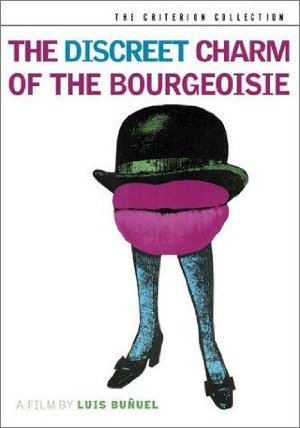
Facts and Figures
Year: 1972
Run time: 102 mins
In Theaters: Sunday 22nd October 1972
Distributed by: 20th Century-Fox
Reviews
Contactmusic.com: 5 / 5
Rotten Tomatoes: 98%
Fresh: 45 Rotten: 1
IMDB: 8.0 / 10
Cast & Crew
Director: Luis Buñuel
Producer: Serge Silberman
Screenwriter: Luis Buñuel, Jean-Claude Carrière
Starring: Fernando Rey as Don Rafael, Delphine Seyrig as Mme Thevenot, Paul Frankeur as M. Thevenot, Bulle Ogier as Florence, Stéphane Audran as Alice Sénéchal, Jean-Pierre Cassel as M. Sénéchal, Julien Bertheau as Monseigneur Dufour, Claude Piéplu as Le Colonel, Michel Piccoli as Le Ministre, François Maistre as Delecluze, Pierre Maguelon as Le sergent de police, Maxence Mailfort as Traum-Sergeant, Milena Vukotic as Ines, Maria Gabriella Maione as Terroristin, Muni as Bäuerin, Georges Douking as Gärtner
Also starring: Serge Silberman, Jean-Claude Carriere
